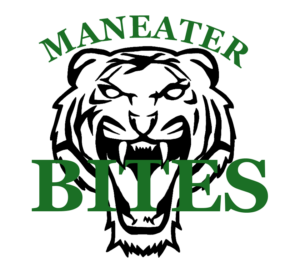March 12, 2018
The Multicultural Center hosted Tunnel of Oppression on March 8, an event with interactive skits and discussion groups for students to “learn first-hand the impacts of privilege, oppression and power on Mizzou’s campus and in society,” according to the event’s poster.
The event was advertised as an “interactive theater experience” and involved multiple campus groups, such as the Women’s Center and the Association of Latin@ American Students. These groups worked with the Multicultural Center to assign Diversity Peer Educators to moderate the discussion and have representatives perform skits.
The event began in Leadership Auditorium, where students were separated into six different groups. Afterward, they left for three presentations, where campus groups performed skits and prompted further discussion with each group. Before the groups left, representatives from the Diversity Peer Educators program explained the community norms that would be in place during this event.
Senior Katie Williams, a coordinator with Diversity Peer Educators, said the event would be considered a “brave space,” in that students should feel comfortable sharing past experiences but also be able to ask questions about something they’re not educated on. She also said the event would be implementing the rule that “what’s said here stays here, and what’s learned here leaves here.”
This is the third year the event has been held. The organizations began in November signing on to participate and formulating their skits as well as preparing Diversity Peer Educators to facilitate discussions, Multicultural Center coordinator Chelsea Drake said.
During the group discussion, Diversity Peer Educators prompted students with questions about their initial reactions and responses to each skit.
The Asian American Association presented about what it means to have the “perpetual foreigner syndrome,” or when someone assumes that an Asian individual is from a foreign country and not born in the United States. Its skit consisted of a character, Claire, going through her day and experiencing microaggressions from fellow classmates, such as one person asking her for directions and telling her she speaks English very well.
After the presentation, sophomore Alice Yu, AAA president, asked the group of students how they perceived these interactions. She also talked about some of her own experiences with other people telling her they “love anime” in an attempt to relate to her because they notice she’s Asian, despite the fact that she is not Japanese.
Approximately 130 students were involved in the event, about 80 students attended and about 50 students performed or facilitated through the Multicultural Center, Drake said.
Drake also said she hopes students “gain new perspectives on what privilege and oppression look like on their campus” through the event.
She said these presentations and skits display real examples of oppression in identity and minority groups that other students may not be familiar with. The event also allows for students to hear from other people and learn a new viewpoint on a particular topic.
“I hope that encourages students to talk to each other even more about privilege and oppression and how they can contribute to making positive change on campus and in their communities,” Drake said. “The greatest thing that can come from this event is students empowered to change the culture that they live in.”
_Edited by Skyler Rossi | srossi@themaneater.com_



Comments
The Maneater has the right to remove comments that do not comply with policies surrounding hate speech.